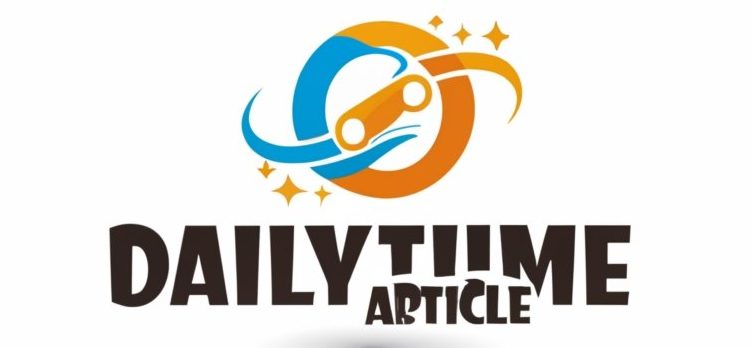Mental Health Billing Services
Mental health billing differs from medical billing in many ways. Billing for mental health services requires different coding rules and restrictions within insurance plans.
Managing the billing process can be time-consuming and difficult for therapists. Outsourcing mental health billing services can save you a lot of headaches and allow your office to focus on patient care.
Tracking Mid-Month versus End-of-Month Billing
The billing department can be a challenging and time-consuming endeavor for a small practice, let alone one with multiple clinicians. Moreover, mental health providers are often tasked with the task of keeping track of a myriad of statutory and regulatory regulations.
Thankfully, there are billing services that offer a streamlined and efficient way for providers to handle their daily operations and maintain a healthy bottom line. Most billing companies have a number of solutions that can be tailored to the unique needs of your practice. These include custom forms and templates, online submissions, data entry tools and more. Having an effective mental health billing system can make your job that much easier and save you precious time.
In short, a well-designed system can help your business grow and flourish. Whether your practice is big or small, the right billing software can ensure that you get paid on time and in full, while keeping your clients happy and satisfied. With the help of a knowledgeable staff and the best mental health billing software around, you can focus on providing the care that matters most to your patients and their families. The best part? You’ll be able to reclaim more of the money you deserve.
Prior-Authorization Tracking
Obtaining prior authorization is one of the most difficult aspects of running a behavioral health practice. This can be a time-consuming process that can lead to denials and poor payment for the services you deliver.
The good news is that a quality billing software system can help you track prior authorizations more easily and efficiently, ensuring that your patients are getting the services they need while optimizing payments for you.
It can also help you reduce delays in patient care when a client’s insurance coverage changes. Many payers require that a client update their insurance information before each visit. This can be a tedious and time-consuming task, but it is essential to protect your patients’ visits from being denied.
A great billing software for mental health practices will allow you to maintain this information in real-time, reducing the risk of a patient’s insurance policy changing before they get a session scheduled. This can also save you money by preventing the need to resubmit claims for sessions that a patient was denied for lack of prior authorization.
You can also increase the effectiveness of your prior authorization tracking by ensuring that your providers are accurately documenting their patients’ conditions and needs during each visit. This will ensure that a payer can see the full picture and determine that a service is necessary and appropriate for the patient.
Whether you need to improve your documentation, file clean-claims on time, efficiently check for prior authorization or improve revenue, you need a vendor of quality billing software that will help you do it all. The right software will also give you the tools to manage your workflows more effectively and promote efficiency within your organization.
Specialty-Specific Billing Software
Behavioral health providers have unique requirements that software designed for other medical specialties often does not meet. Whether it is clinical documentation or billing support, a specialty-specific solution will help your team work more efficiently.
Choosing the right software for your practice can be overwhelming, but it’s worth the effort to find a solution that works well for you. You’ll want to consider your budget and the level of customer support offered by the software provider.
A good billing system will make it easy to track and report payments, including claims for patients with insurance or no insurance. It will also provide claim scrubbing features to check for errors and reduce the risk of denials.
Mental health practices have a lot of patient data and records to manage, so it is essential to choose an EHR that has a robust and streamlined documentation workflow. This will help your staff get the information they need quickly without having to spend too much time sorting through irrelevant data.
This will improve your productivity and allow you to bill more accurately and more quickly. It’s also important to choose a system that has ICD/CPT codes that are specifically geared towards behavioral health treatments.
These codes will ensure that your claims are billed accurately and on time, avoiding delays and delays in reimbursements. Additionally, they can be used to keep track of prior-authorizations for visits and optimize payments, especially for patients who may come in multiple times a month or who have more involved treatment plans.
Choosing the right behavioral health EHR can be challenging, but it is crucial to find a solution that suits your needs. The best way to do this is to ask yourself some questions, including what your budget is and what your goals are.
Higher Clean Claims Rate
A higher clean claims rate is essential to a healthcare practice’s success. It shows insurance companies that the data your practice collects is accurate and free of errors, which leads to faster reimbursement and reduced labor costs.
A high clean claim rate also enables your medical billing staff to focus on other areas of the revenue cycle management process, reducing rework and delays. Achieving a target clean claims rate doesn’t have to be a long-term endeavor, as these strategies and best practices are habits that can be formed over time.
If you’re ready to take your clean claims rate to the next level, consider working with a medical billing company. Using a third-party service allows your team to focus on other priorities while ensuring claims are being processed accurately.
Many services offer software that helps with daily claim scrubbing, which ensures that all claims are error-free before they are sent to payors. This helps avoid delays, denials, and missed payments, which can cost up to $20 billion annually in lost or delayed reimbursement in the United States alone.
The key to achieving a clean claims rate is ensuring that your staff understands the importance of this ratio and how it impacts their work. Your healthcare billing services partner can educate your employees on the MAP key standards and best practices for improving this ratio.
Your medical billing services provider can also help identify areas where your clean claim rate may be lacking. For example, if you receive frequent rejections for a particular specialty or payer, it’s worth evaluating your workflows to determine if there’s something you can change to improve your clean claims rate.
A higher clean claims rate is essential to ensuring your medical practice gets paid on time and in full. Keeping this ratio above 95% will help you increase your revenue and reduce back-end costs, so you can put more of your resources towards patient care.
Claims Resubmission
When a claim is denied, resubmission is often necessary. Whether it’s because of documentation, coding or other errors, having a system for dealing with resubmission can help your staff better understand the reasons why claims are rejected and make sure that the resubmitted claim is correct.
The first step to getting the resubmission process working is determining what you need to resubmit and then creating an outline for your team. This will ensure that you have all the information in front of you when you need it, which will save you time and energy and make the resubmission process easier for everyone involved.
Another important step in resubmitting a claim is ensuring that the original charge was processed correctly and accurately. This is especially critical for inpatient care claims.
HMSA uses an electronic resubmission process that allows providers to replace or void a previously submitted claim electronically, instead of mailing a paper Claims Inquiry Form (CIF) or Appeal Form with accompanying Remittance Advice Details (RADs). The resubmission should include the 13-digit Claim Control Number from the original paid claim.
Resubmissions must be resubmitted within six months of the original RAD date to receive full reimbursement for the replacement claim. If the resubmission is made to void or cancel a previous paid claim, the resubmission should serve as a full void for one claim line only.
To resubmit a claim, you’ll need to edit the charges or patient record, add a payer claim control number and then resubmit the claims using your billing software. This is a time-consuming process, but it’s essential for resolving any issues that may have caused a claim to be denied.
Also Search: Soymamicoco







